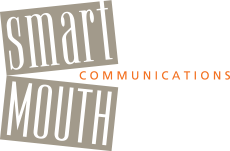Gearing up to make a speech or presentation can be daunting for two main reasons – one is the challenge of organizing your thoughts and material into something interesting and compelling; the other is the challenge of managing yourself, your nerves, and the dread that comes with anticipating the faces, opinions and judgment of an audience.

For the first one, click on the highlighted link to access our tool that can help you. But for the second one, let’s try and put that into perspective right here, right now.
To that end, I’d like to offer 3 proven facts for you to use as “notes to self” when you find yourself thinking up excuses you can use to back out of your speaking commitment. I bet you didn’t know – or maybe when anxious, you’ve suppressed – these 3 tested and true facts:
Did you know that …
1. Audiences cannot tell you’re nervous.
Unless you call it out or unless it’s very – and I mean very – exaggerated, audiences cannot tell you’re shaking, not breathing normally, or sweating. There have been surveys around this, and it turns out the vast majority of audiences cannot see the manifestation of nervousness in speakers. Anecdotally, I can tell you I’ve worked with groups in which the participants have had to give mock presentations to each other and – without fail – these peer audiences have not noticed when their colleagues were shaking or couldn’t breathe. Interesting!
Bottom line: Know that what you are feeling, while it seems blatantly obvious to you, is going to be invisible to your audience. And no matter what, don’t call it out!
2. Audiences don’t know when you’ve skipped or forgotten something.
Of the many ways to fluster yourself, skipping or forgetting a chunk of your material while delivering your talk is right up there on the list of top flusterers. Nonetheless, I can guarantee you that you’ll be the only one distracted by it. Your audience won’t know. So even if, worst-case scenario, you moved clumsily from your first point to your third point and it sounded like a non-sequitur to your audience, they’ll get past the rough transition and join you in your third point … and they still won’t know.
Bottom line: Know that what you skipped, while it seems like a blatant omission to you, is not noticeable to your audience. And no matter what, don’t call it out!
3. Audiences are on your side, they expect you to succeed.
Yes, the home court advantage is yours! Audiences are passive, they’re just waiting for – and expecting – you to do a good job. In fact, they’re glad the responsibility is on someone else, and they assume that since you were invited to go to the front of the room, you have the gravitas for it and you’ll do just fine. No one is sitting there waiting for you to fall on your face (like you might be?). Your audience is waiting for you to connect with them and offer them something of value, something new or useful. So be sure to do that!
Bottom line: Know that your audience is not judging you harshly, they’re actually waiting for you to enlighten them. And no matter what, don’t open with disclaimers or qualifiers about how prepared/unprepared you are or how confident/insecure you are about your topic.
Audiences are people, just like you. Observe yourself when you’re listening to a speaker/presenter and make more “notes to self” that will help you the next time you get up to speak!
- New Agey Advice for Nervousness - November 3, 2022
- Your Passion Can Go a Long Way Toward Building Connection - October 10, 2022
- Keep stage fright a private matter while you’re speaking on a public stage! - August 11, 2022



